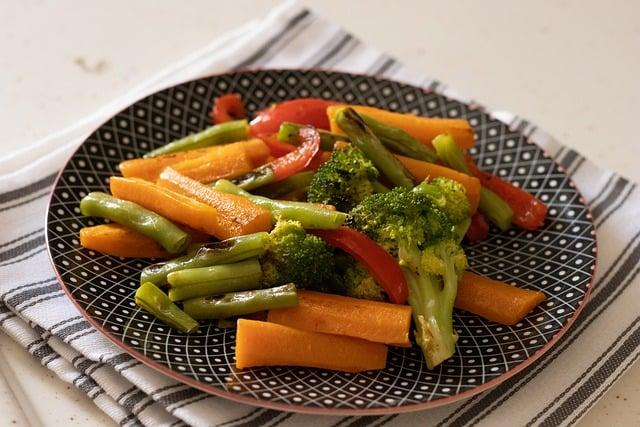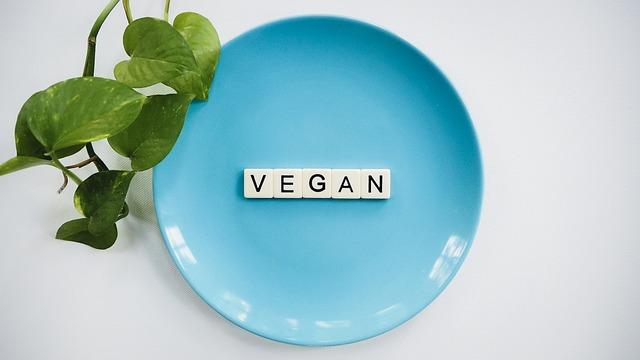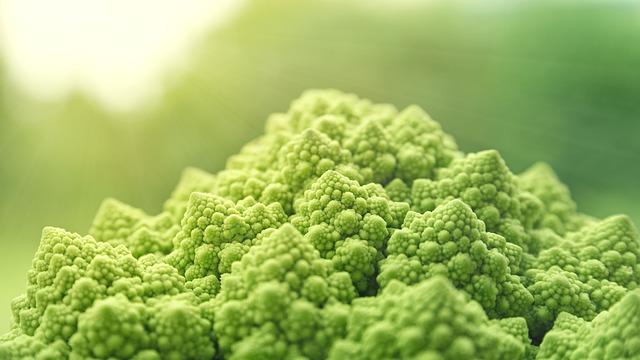In the realm of health and fitness, the pursuit of a sculpted physique often conjures images of heaping plates of chicken breasts and protein shakes. Yet, a new narrative is quietly unfolding in gyms and kitchens worldwide—one where the iron-pumping athletes are powered by plants. “?” delves into this intriguing intersection of dietary choice and physical ambition. As more individuals embrace veganism for ethical, environmental, or health reasons, a question lingers in the minds of many: Can a plant-based diet truly support the rigorous demands of muscle growth? This article explores the myths and truths surrounding veganism and muscle building, offering insights from nutritionists, athletes, and scientific studies to shed light on whether the power of plants can indeed fuel the quest for strength and size.
Building Blocks of Plant Power
In the quest to understand the potential of a plant-based diet for muscle building, it’s essential to dive into the core components that fuel this transformation. Protein, the macronutrient often synonymous with muscle growth, can be abundantly sourced from plants. Legumes like lentils and chickpeas, grains such as quinoa and farro, and seeds like chia and hemp are all rich in protein. These powerhouses not only offer the essential amino acids necessary for muscle repair and growth but also come packed with fiber and micronutrients, contributing to overall health.
Beyond protein, other building blocks play a crucial role in muscle development. Healthy fats from avocados, nuts, and seeds provide energy and aid in nutrient absorption. Carbohydrates, found in fruits, vegetables, and whole grains, are vital for replenishing glycogen stores post-workout. Additionally, the inclusion of a variety of colorful vegetables ensures a wide range of vitamins and minerals, supporting everything from immune function to bone health. By understanding and leveraging these plant-based components, one can successfully build muscle on a vegan diet.

Nutrient Timing and Protein Sources
Understanding the timing of nutrient intake is crucial for those pursuing muscle building, especially on a vegan diet. Strategically planning meals around your workouts can enhance performance and recovery. Consuming protein-rich foods shortly after exercise is essential, as this is when your muscles are most receptive to nutrient uptake. Post-workout, aim for a combination of proteins and carbohydrates to replenish energy stores and facilitate muscle repair.
When it comes to vegan protein sources, there is a diverse range of options to consider. Here are some excellent choices:
- Legumes: Lentils, chickpeas, and black beans provide substantial protein and fiber.
- Tofu and Tempeh: These soy-based products are versatile and rich in protein.
- Quinoa: A complete protein, quinoa offers all nine essential amino acids.
- Nuts and Seeds: Almonds, chia seeds, and hemp seeds add healthy fats along with protein.
- Seitan: Made from gluten, seitan is a high-protein option for those without gluten sensitivity.
Balancing these sources throughout the day can help maintain a steady supply of amino acids, supporting muscle growth and repair.

Overcoming Common Myths and Misconceptions
There are several myths and misconceptions surrounding the idea of building muscle on a vegan diet, often leading to skepticism about its effectiveness. One common belief is that vegan diets lack sufficient protein sources necessary for muscle growth. However, this couldn’t be further from the truth. Plant-based diets offer a plethora of protein-rich options such as lentils, chickpeas, tofu, tempeh, and quinoa. These foods not only provide the essential amino acids needed for muscle repair and growth but also come packed with additional nutrients that benefit overall health.
Another misconception is that vegans can’t achieve the same muscle mass as those consuming animal products. In reality, muscle building is less about the source of protein and more about consuming adequate amounts, paired with a well-structured workout regimen. Vegan athletes like Nimai Delgado and Torre Washington have shattered these stereotypes by showcasing impressive physiques and strength on a plant-based diet. The key lies in strategic meal planning, ensuring a balanced intake of proteins, carbohydrates, and healthy fats, alongside proper training. So, dismiss the doubts and embrace the possibilities that veganism offers in the realm of muscle building.

Crafting a Balanced Vegan Muscle-Building Plan
Designing a vegan diet that supports muscle growth requires a thoughtful approach to ensure you get the necessary nutrients. Start by focusing on protein sources like lentils, chickpeas, quinoa, and tofu, which are rich in essential amino acids. It’s crucial to consume a variety of these plant-based proteins throughout the day to meet your body’s requirements. Pair these with complex carbohydrates such as brown rice, sweet potatoes, and oats to fuel your workouts and support recovery.
Don’t overlook the importance of healthy fats, which are vital for hormone production and overall health. Incorporate foods like avocados, nuts, seeds, and olive oil into your meals. To round out your plan, make sure you’re getting enough micronutrients by eating a rainbow of fruits and vegetables, which will provide vitamins, minerals, and antioxidants. Consider the following tips for a balanced approach:
- Hydration: Drink plenty of water throughout the day, especially before and after workouts.
- Supplementation: Consider B12, omega-3, and vitamin D supplements to fill potential gaps.
- Meal Timing: Eat protein-rich meals or snacks every 3-4 hours to maintain muscle protein synthesis.
In Conclusion
As we draw the curtains on our exploration of veganism and muscle building, it’s clear that the path to strength and vitality is as diverse as the individuals who walk it. Embracing a plant-based lifestyle doesn’t mean sacrificing muscle growth; rather, it invites a harmonious balance between nutrition and ethics. With thoughtful planning and a mindful approach, the garden of gains is ripe for the picking. Whether you choose to tread this verdant path or seek strength through other means, the essence remains the same: a commitment to nourishing your body and spirit. the journey to muscle building is not just about the destination but the vibrant and conscious choices we make along the way.


































